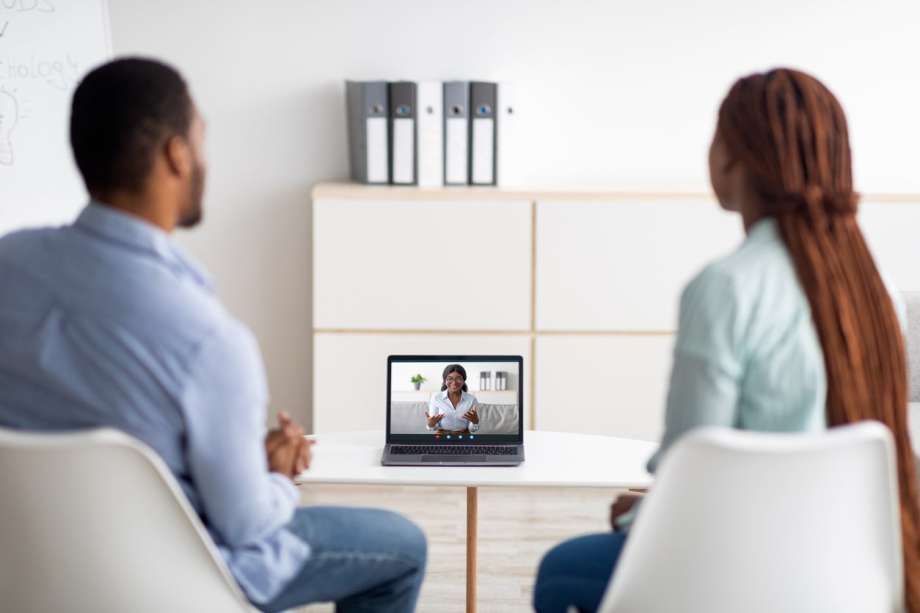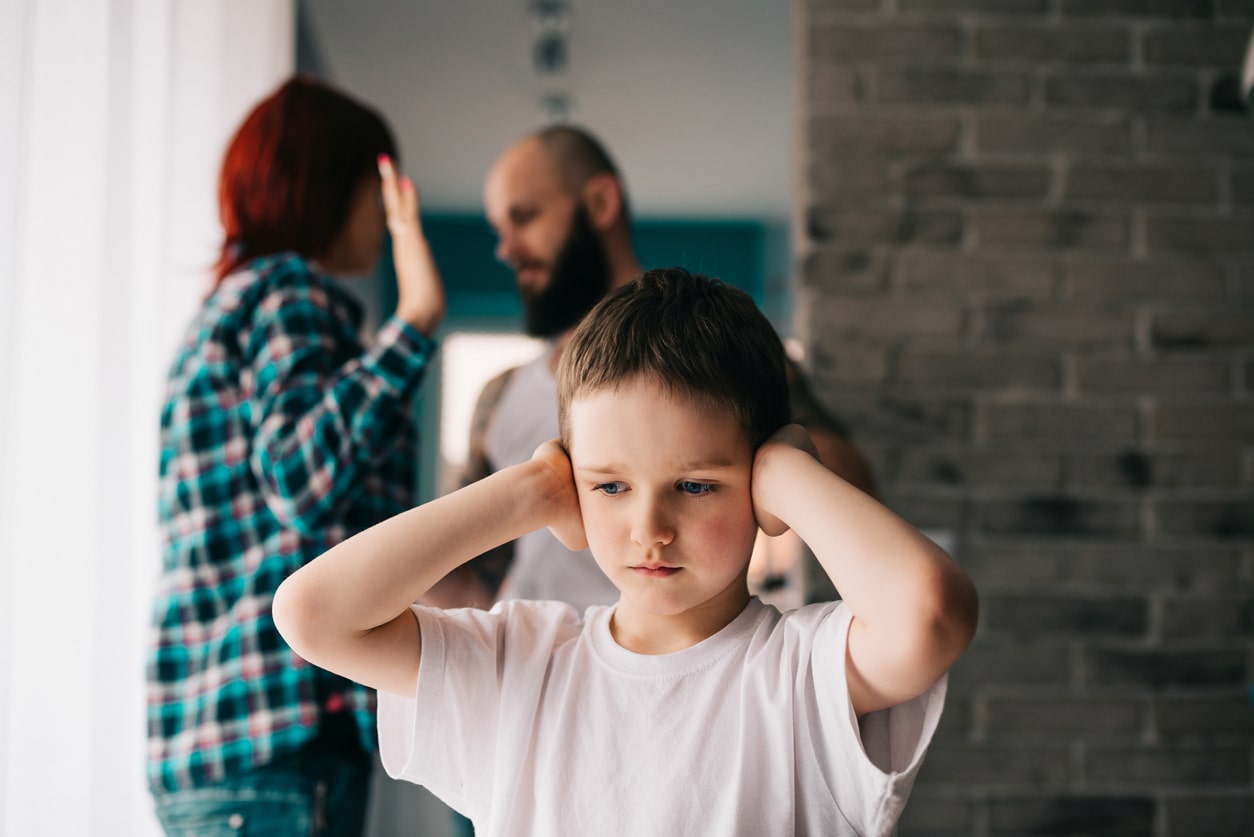How to Find the Best Co-Parenting Classes and Co-Parent Programs

Let’s face it, co-parenting isn’t always easy.
Co-parenting classes are valuable for both ex-partners and kids when you’re dealing with different parenting styles, relationship conflicts, new significant others, or you just aren’t sure how to parent solo.
From practical parenting skills to handling high-conflict situations, parent education classes provide the real-world help that you need right now and as you work your way through this journey. If you’re not sure where to start, we’ve got you covered.
Read on for more info on online and in-person classes that can lead to better parenting and better co-parenting.
Related: How to Make a Custody Schedule After a Divorce
The Big Challenges of Co-Parenting
Some exes can make this transition look easy, while others struggle with the challenge. You may find yourself on the easy end of the parenting skills spectrum, on the struggling side of co-parenting with a not-so-helpful ex, or somewhere in between.
Conflict resolution, effective communication, anger management, and child support are all common challenges that new or soon-to-be ex-partners often face. Divorce isn’t easy for the adults involved—and it’s often harder for the children.
According to the American Psychological Association, even though this transition is a traumatic experience for many kiddos, research shows that children may adjust well to the changes within two years. But if there is a high degree of parental conflict, chances are the children won’t have an easy adjustment period. This makes understanding the challenges of co-parenting absolutely essential.
Some challenges of navigating separation and making a co-parenting plan include:
Difficult parental decision-making
Now that you’re in two separate households, it isn’t easy to maintain a unified front when it comes to making major decisions. You want your child to go to the local public school, your ex is all for the private option, and your kiddos just want to follow their friends.
This type of major decision, and others that involve your child’s education or general well-being, isn’t always easy after a divorce.
Child custody arrangements
Who will spend the most time with the children? Where will they live? Child custody is something the county courts decide. But this doesn’t mean it won’t pose significant challenges as you work through a divorce or start to parent solo.
Managing kids’ schedules
Your child has basketball Monday and Wednesday at the gym close to your house. Your ex normally sees your child on Mondays but lives an hour away from the gym and can’t get your kiddo to practice on time. This example of what may seem like a simple scheduling conflict can easily escalate into a major dispute.
Conflicting Parenting styles
From a gentle parenting or permissive style to a strict, authoritarian approach, there are more than a few parenting styles. If the two of you don’t agree on one style, you could add stress to an already difficult situation.
Inconsistent routines and constant change

Does your child take a bath and go to bed by 8 p.m. at your house, but stay up until 10 at their other parent’s home?
Consistency between two separate households isn’t always easy to achieve. Failure to do so could cause parental conflict and confuse your child.
Communication issues
Effective communication is necessary to co-parent children with an ex. Arguments, the inability to get a hold of an ex easily, or a total breakdown of communication can make it impossible to work as a parenting team.
New partners or spouses
The introduction of a new romantic partner can make an ex resentful and a child anxious or even angry.
Financial issues and child support
This category includes financial decisions on what is/isn’t important to pay for and child support. According to the U.S. Census Bureau, in 2017 just over 27 percent of parents with a child 21 or under received child support from the nonresidential parent.
Not only is the amount of child support sometimes problematic, but whether the ex-spouse pays it or not can cause major challenges.
First Steps to Co-Parenting After Divorce
How can you effectively co-parent with your ex? The steps to better parenting after divorce aren’t always universal. If you’re in a high-conflict situation, you may need an outside party to help resolve some of your spousal and parenting issues. This could include a mediator or counselor/mental health professional.
Cooperation is key as you go forward. Without it, you could add unnecessary stress for you, your ex, and your child.
A study published in 2021 found that teens with parents who cooperated during and after the divorce had lower amounts of internalized and externalized problems.
If you can’t get on the same page with your ex, support from parent education classes can help you to better understand the challenges you face.
For some parents, co-parenting will involve specific court-ordered steps. These depend on the local courts, the county or state’s statutes on court-mandated classes, and your individual situation.
If you or your partner are required to take a county parenting class or a court-mandated class may also mean that you need to show a judge the certificate of completion.
Not only will the class help you to become a better parent/co-parent, but it may also need to fulfill the state’s or county’s laws family court regarding child custody and child support.
What Are Court-Ordered Co-Parenting Classes?

It’s very possible that your state or county family court will require a parenting class as part of your custody or divorce agreement.
For example, the state of Virginia’s laws mandates that all parties (parents) in cases that include child support, visitation, or child custody must provide proof that they have attended or will attend an approved educational parenting seminar.
Other states, such as Utah, also have similar parenting classes or divorce class requirements. Some states may also require exes to create a parenting plan that may or may not include classes. Maryland is an example of a state that makes this requirement for parents who are seeking custody or a custody modification.
Do You Need Co-Parenting Classes?
Even though your state or county may not require a parenting class during or after a divorce, this type of seminar or workshop can help you to become a better co-parent. The class can help you to learn more about co-parenting/parenting and can benefit your child. Research has shown that parenting education classes can contribute to a more positive parenting style, improve social connections between the parents, improve child behavior, enhance mental health and well-being, reduce the risks of physical child abuse, and lead to better quality parent-child interactions, according to the U.S. Department of Health and Human Services Administration for Children and Families.
The Best Online Co-Parenting Classes
You don’t necessarily need to take a class in person. Some states allow divorcing moms and dads to participate in online parenting programs. This type of parenting skills class provides information that is similar to an in-person workshop, but can be easier to fit into your schedule when you don’t have to travel or attend classes at specific times.
The specific virtual co-parenting course you choose depends on whether you need to take a court-mandated class or if your county/state doesn’t have this requirement.
Consult with your lawyer or mediator before you select an online parenting program. If you’re not sure where to take a class, start with these top picks:
The Online Co-Parenting/Divorce Class is, according to the company’s website, recognized by courts in over 1,400 counties across the U.S. Classes include information on taking care of yourself, taking care of your children, co-parenting together, managing life as a single parent, and more.
Prices for this co-parenting program range from $29.99 for a two-hour class to $109.99 for a 12-hour course.
This subscription site provides plenty of info for parents. Tinyhood.com online classes include everything from Infant CPR to mastering diaper changes. These classes are not court-approved.
An annual full-price subscription to Tinyhood is $155 per year.
The Center for Divorce Education offers this online co-parenting program for divorcing parents. While this course is generally court-accepted, the site notes that you need to make sure that it meets your jurisdiction’s minimum time requirements. The virtual program includes video scenarios, guided questions, skills practice, and quizzes.
Prices for the four-hour course vary by country.
This co-parenting class uses a psycho-educational approach that helps parents to learn about and focus on their children. The class covers effective communication skills, conflict resolution, the financial responsibilities of parenting, the importance of the parental bond, and more.
Putting Kids First costs $60 for the online class and $75 for the mail-out version.
The Co-Parenting From Two Homes Class by Parent Team includes modules such as preparation, telling your kids, creating two homes, the new normal, boundaries, and when you disagree.
The full price for their co-parenting course is listed at $99.
Finding In-Person Co-Parenting Classes
While online classes offer flexibility and can reduce the need to find child care during the course time, some parents prefer an in-person experience. If you want the face-to-face interaction of an in-person program or learn better from an IRL instructor, you have options. These vary by area, but you may find co-parenting classes from:
Look up laws for your state
Does your state require court-ordered parenting classes? If so, the state’s website may provide a list of in-person courses in your local area. For example, New York, provides parents with a list of options, while others may have an easy-to-use search tool that is based on your location.
Consult with your local family court
As you make your way through the divorce process, the court may provide you with a list of recommendations for approved co-parenting classes.
Ask your attorney for recommendations
If you must complete a parenting class as part of your divorce agreement, ask your lawyer for more information on local options.
Check parenting classes at local hospitals
While these aren’t always court-approved, hospital-based classes can help you to become a better parent. These courses could include a variety of topics, such as feeding your baby/child, potty training, behavioral issues, and safety.
Reach out to community organizations
Some local community centers or educational organizations offer classes on how to improve your parenting skills.
Check mental health centers and organizations
These courses may focus on the psychological aspects of parenting and divorce.
What Can You Do If Your Ex Won’t Attend Co-Parenting Classes?

What if your fellow co-parent is refusing to attend a co-parenting class or work on a co-parenting plan?
The next steps in this situation depend on where you live and the local child custody statutes. If the court requires all parents to complete a parenting course in order to gain custody or visitation, your co-parent may forfeit their rights.
Depending on the state’s laws, the judge may not grant the divorce, could hold the parent who refuses to attend class in contempt of court, or could impose financial penalties.
To learn more about what happens if your ex won’t comply with this requirement, speak to a legal professional. Your attorney can help you to understand the consequences of your ex’s behaviors from a legal perspective.
Even though your ex or soon-to-be ex may resist the order to go to class or (if there is no order in place) refuse to attend a class with you as a parenting pair, you can still complete a course on your own.
Don’t let your co-parent’s lack of initiative or challenging behaviors stop you from complying with a court order or being the best parent possible. Most classes will not require both parents to register or take classes together. This means you can go ahead and sign up for your preferred program pick without waiting for your ex.
Co-Parenting Resources and Tips for Parents and Kids
How can you co-parent your child in the best way possible? Life after divorce is filled with challenges. From changes in your finances to creating a completely new schedule, you will need to rearrange your life in some pretty major ways.
While this isn’t the easiest time in your life, you don’t have to go through divorce and co-parenting alone. Even if your ex isn’t exactly acting like your parenting partner, you can still find support from friends, family, or professionals.
If you need to learn more about resources for co-parenting or finding co-parenting programs, check out:
- The Child Welfare Information Gateway: The U.S. Department of Health and Human Services’s website provides plenty of info on parent education programs, including links to online and in-person resources.
- Local Bar Associations. Your state’s Bar association may provide resources and tips for parents as they navigate the legal process. The Pennsylvania Bar Association has a special web section on tips and techniques for effective co-parenting.
- National Responsible Fatherhood Clearinghouse. This government-sponsored site has information on co-parenting and links to PDF resources.
- State’s Family Courts: Most states have comprehensive websites that provide links and help to parents who are navigating this new stage of life. This may also include information about local parenting class requirements.
Do you want to learn more about co-parenting? Check out these 19 Helpful Co-Parenting Apps for Divorced Parents.

